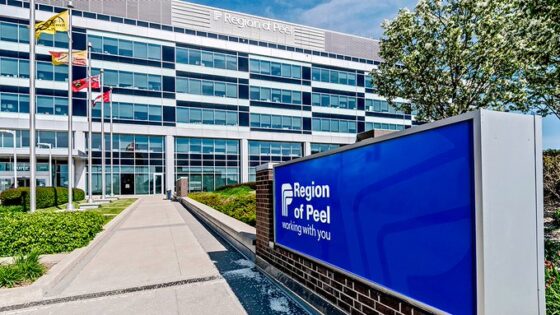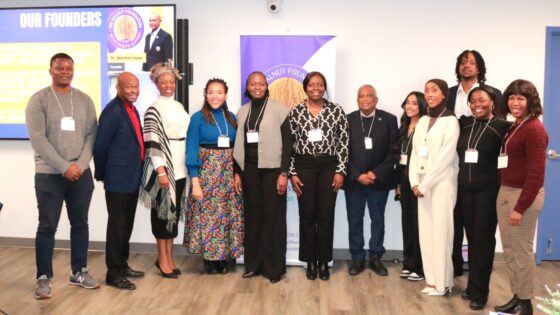on
BY: KABRENA ROBINSON
Within different fields of work, there are various women who carry out important day to day tasks. Many contributing as educators, mentors, innovators, leaders and philanthropists, all positive agents in nation-building. While some are celebrated and recognized openly, there are still many courageous and hardworking women among us who remain as unsung heroines. Some of these inspiring women were recognized during a special award ceremony at the 2017 Brilliant Minded Women Gala.
The 4th annual event hosted by television broadcaster Christopher Mei was held on Friday, November 17th at the Riviera Parque Convention Centre in Vaughan. The occasion was an elegant evening set aside catering to the organization’s primary goal which is “to acknowledge the achievements and leadership of female entrepreneurs and leaders and to celebrate how much they matter”. The organization also uses their collective power to raise funds for their Foundation Scholarship that they offer to students every year.
“When we see that our girls are happy it’s the biggest joy for us because what we do, the all year preparation is about bringing the communities together,” said Agata Klimczak CEO and founder of the Brilliant Minded Women Organization in an interview. “I believe we have over thirty nationalities in the room tonight so for them to meet and to acknowledge women who they’ve maybe never met before, to be nominated and at the same time creating an opportunity for mentorship and coaching for our scholars, that is so close to our heart, it just makes us happy.’
The award ceremony showcased and recognized a wide variety of women and young girls, ranging across numerous fields and lines of work such as community service, business and the arts as well as academics and humanitarian contributions. A great amount of diversity was also present in the vast selection of awardees, with women and young girls from different ethnicities and cultural backgrounds, each making a remarkable impact within their communities and Canada’s wider multicultural landscape.
The prestigious lifetime achievement awards for this year went to Dr Jean Augustine and Norma Trivino. Dr Augustine is a Grenadian/Canadian educational administrator, social justice advocate and politician. She was also the first Afro-Canadian woman to be elected to the Canadian House of Commons and the first to serve in the federal cabinet and continues to stand as a notable and celebrated figure in Canadian history. Norma Trivino has served as a dedicated volunteer at work, in church and in her community for over 25 years. Trivino’s reputable line of work includes a self-esteem workshop facilitated in her community for Latina girls at a day camp. She has also contributed to numerous charitable organizations as well as serving in many diverse roles including Chair, Co-Chair, Committee Member, Special Events Coordinator and Ambassador Coordinator over the past fourteen years.
The Global excellence award went to Fran Rider, who received a heartfelt commendation from special guest Hazel McCallion former mayor of Mississauga after serving for over three decades. Rider is one of the founders of the Ontario Women’s Hockey Association. She is famously recognized for her honourable and tireless efforts to promote women’s hockey in Canada and around the world for over fifty years.
Other awards for the evening were the Political Leadership Award presented to Joyce Morocco, president of Destination Niagara Falls Regional website and established politician Nita Kang. The Philanthropist of the Year Award was presented to Josie Morand and Seliena Ganglani while the Charity of the Year Award went to Maria Esteves and Henah Ji. Awards in business development and growth were presented to journalist and editor Jennifer Beale, educator and entrepreneur Kathia Saint-Victor and business owner Nadia Asfour Al Sayegh. Joanna Andros, Dorota Jakubowska and Alessandra Piccolo received the Self Development Award while the Best Community Service Awards was presented to Cityline host Tracy Moore and philanthropists Beata Wecek and Edyta Jodelka. The Volunteer of the Year Awardees were private pilot and public speaker Lesley Page and Iryna Yakovenko vice president of the Brilliant Minded Women Foundation. The Mind and Body Award was received by Josephine Auciello and Tabi Moazzam while the Arts and Entertainment Award was presented to Beata Kaas of Kaas Floral Design, actress, model, film producer and CEO and founder of the Toronto Polish Film Festival EKRAN Marta Pozniakowski and certified financial planner Tina Tehranchian. Remaining awardees were Mariya Tarasio who received the Resilience award and star student Natalia Jureczek, Canadian artist Natalie Castro and Canadian abstract and photo-realistic artist Gwyneth Herrera all receiving the Student of the Year Award.
The evening also featured special appearances from the mayor of Mississauga Bonnie Crombie, veterans from Canada the US and the UK and performances and presentations from the I.D.A International Academy, Carlos Herrera, Satin Roses Band, Elyse Saunders, Natalie Castro and ballroom dancers Nicole Peszor and Patryk Staniszewski.
“What we really wanted to show to the world is that it is not about who you are by religion, by colour, by political parties or company,” said Iryna Yakovenko, vice president of the Brilliant Minded Women Foundation and 2017 award recipient in an interview. “This is about the women, the mothers, the sisters, the daughters. We are all the same, we all have a part and we all struggle. When we struggle, we struggle together when we win, we win together.”
Stay in the loop with exclusive news, stories, and insights—delivered straight to your inbox. No fluff, just real content that matters. Sign up today!














Norma Trivino
June 20, 2018 at 12:48 am
Kabrena Robinson: Thank you for writing about me in this article!
Carrie Zeffiro
May 17, 2019 at 11:18 am
Congratulations Joyce! What a well deserved honour. You are an inspiration to other women in Niagara who look at you and see your confidence and dedication to our community. You truly do live the Rotary motto of Service Above Self.